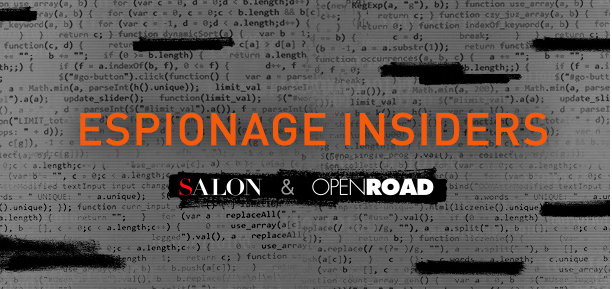You’ve probably never been on the Dark Web—but your information has.
If you’ve ever been a part of a massive security breach (think Target, Amazon, or even the IRS), it’s likely that your personal data has appeared for sale in this secret corner of the digital realm where users, thanks to a cloak of anonymity, move in secret—creating a breeding ground for criminal activity.
“If your data has been compromised in a leak, it’s been bought and sold on the Dark Web,” says Dan Patterson, a tech journalist who specializes in matters of cybersecurity, politics, and government.
Don’t panic just yet. “That’s not where the money is,” explains Patterson, who says the majority of hackers deal in what’s known as Zero Days threats—finding security loopholes within corporations and agencies and exploiting them for a price.
Taken on its own, the Dark Web is disconcerting enough: a virtual dark alley filled with bogeymen and unseemly characters ready to trade private information to the highest bidder. It’s something most citizens probably prefer not to think about—but in 2013, Edward Snowden proved that we have to.
“What Snowden did was reveal a profound existential threat,” says Patterson. “He showed that the NSA wanted not only to break encryption, but to [obtain] all of the code, all of the information—they wanted everything.”
While the NSA was acting in a way that Patterson describes as “contrary to the ideas of freedom and liberty,” it wasn’t the surveillance that was surprising—it was the careless way they collected it, leaving open large loopholes for potential exploitation. By failing to follow basic safeguards that would keep our information out of the hands of criminals, he explains, the government made us more vulnerable—in the name of national security.
“Imagine that you stockpile all of the nuclear weapons in one place,” explains Patterson. “Nobody knows you’ve been stockpiling them, or where they are. Let’s say you’ve been storing them all in Missouri. Once we have found them there, we have found everything. We have them all.”
“We are creating information at a rapid pace,” he continues. “Of course, someone will want to collect the information and make sense of it… organizations, private companies, and so on. But it was remarkably reckless and undermined the faith and trust that the people had in the United States.”
That recklessness places our country in tremendous peril. In the new warfare, the weaponization of information is a development as impactful and important as the development of the atomic bomb in 1945.
And, to be clear, this isn’t an obscure future-of-battle idea. Cyber warfare has been here, in use, for a long time. In 2007, the Stuxnet Worm—a virus that many believe was jointly built by the United States and Israel—was used to attack Iran’s nuclear program. It was a game changer: with one program, we could control large-scale industrial facilities such as power plants.
“We had never used code offensively to destroy infrastructure before,” notes Patterson. “This broke the dam.”
“It’s the idea of proportional response,” he explains. “We get hacked by another country and never know, and our government responds in kind. Governments are hacking each other all the time. Day and night.”
In that light, it makes the NSA’s collection of personal data—without proper security—a potentially catastrophic event.
There is a bright side, however—even in relation to the Dark Web. Our government is employing thousands of hackers to counterbalance the threat, explains Patterson, who also points out that in a day when nothing is private, the Dark Web offers the privacy that is essential for whistleblowers. “We need people who live under oppressive regimes to be able to communicate with the outside world,” he says—a possibility afforded by encryption and anonymity.
That, Patterson says, is something we owe to Edward Snowden. “It was a radicalizing event,” he says. “It raised awareness of encryption, and now it is mainstream.”
Dan Patterson is a tech journalist and Senior Writer for TechRepublic, covering cybersecurity and the intersection of technology, politics, and government. To read his work, click here. Mr. Patterson’s perspective is offered as part of a four-part series by Salon.com on behalf of Open Road Studios in celebration of the film SNOWDEN, in theaters September 2016. To read more in this series, start here.

